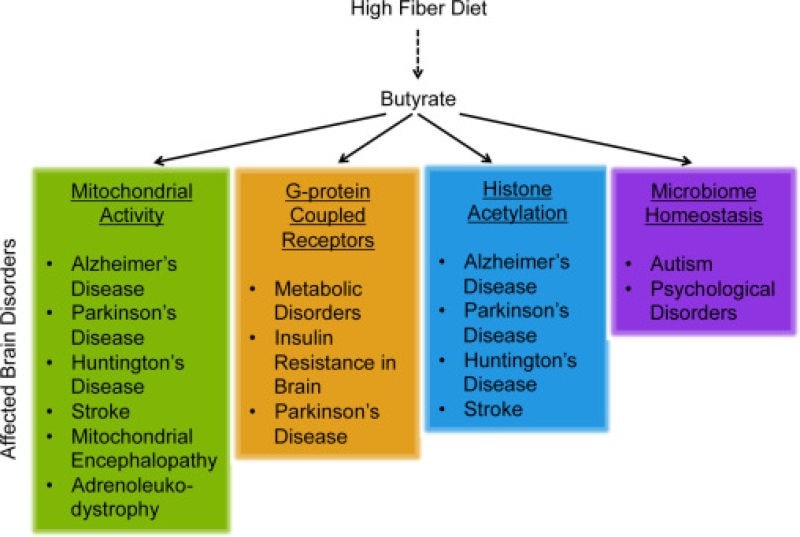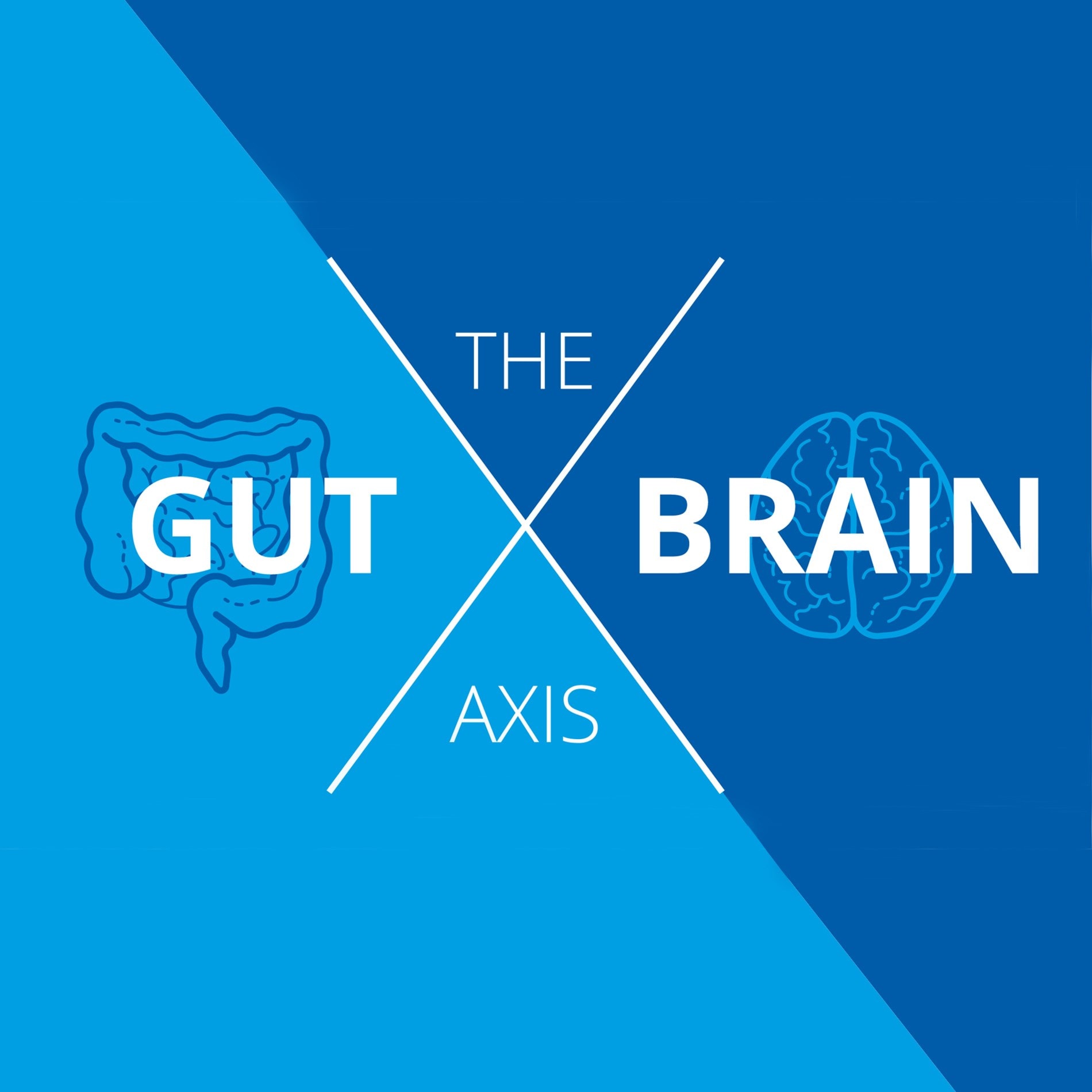Eat More Fibre for a Healthy Brain
‘Good health starts in the gut’ so they say, and increasing evidence is suggesting that good mental health is also linked to a healthy tum too. But can our gut health and microbiome influence the development – or prevention - of serious brain disorders such as Alzheimer’s disease?
A recent review of the available evidence, published in Neuroscience Letters this month and conducted by a team of American researchers, suggested a role for a high-fibre diet in the support of brain health. The authors, Megan Bourassa and team, had this to say:
“In this review, we will integrate evidence from the disparate fields of gastroenterology and neuroscience to hypothesize that the metabolism of a high fibre diet in the gut can alter gene expression in the brain to prevent neurodegeneration and promote regeneration”.
The brain, butyrate and beneficial bacteria
With around 90% of our bodily cells thought to be of microbial origin (though this is now up for debate - see Joanna's recent blog: 'Are the bacterial cells in your body fewer than once thought?'), the authors suggested that it was essential for good health and disease prevention for us to host a diverse microbial community, although it was not yet well understood just how brain function could be affected by the microbiome. The positive gut-brain relationship has been shown to involve a variety of different mechanisms including the synthesis of neurotransmitters, such as GABA and serotonin; the modulation of immune responses; alteration of epigenetic markers and the metabolism of bioactive food and energy sources.

The authors recognised the vital importance of diet on brain health, and in particular, a high-fibre diet leading to the production of butyrate. Butyrate, a short-chain fatty acid (SCFA), is synthesized via the fermentation of indigestible fibre by bacteria in the colon; one of its most well-known functions is as a food source for the cells that line the colon, known as colonocytes, and this is one of the reasons why a healthy gut bacteria is so vital to ensure a healthy and well-functioning colon. Indigestible fibre is an essential part of a healthy diet: foods that are particularly benefical and rich in resistant starches and fructo-oligosaccharides (FOS) which provide the gut bacteria with a supply of fibre to ferment, include wholegrains such as oats, pulses, bananas, onions and chicory.
But how is energy production in the colon linked to brain health?
One common factor in many brain disorders is an imbalance in the process of energy production. The brain is one of the most energy-hungry organs in the body, using up to 20% of our daily energy intake in the form of glucose, and it has been determined that a reduction in efficient glucose utilisation can be a pre-cursor and a predictor of many serious brain disorders such as Alzheimer’s disease. This realisation has prompted research into viable energetic alternatives to glucose, but to date, no studies have focused on the potential of gut-generated butyrate as an alternative energy source for the brain which could possibly restore efficient brain function.
This latest review concluded that butyrate, both from dietary and pharmacological sources, had sound potential as an alternative cerebral energy source, but also had many more mechanisms of action that could offer low-risk benefits in preventing and supporting brain disorders.

Impaired glucose metabolism is thought to have a bearing on mitochondrial dysfunction in both acute and chronic neurological diseases, but researchers believe that mitochondrial activity is another problem that could be improved by butyrate’s direct and indirect effects on energy metabolism. Butyrate is also known to increase histone acetylation, a process that encourages the expression of prosurvival, proregenerative and proplasticity genes. Sodium butyrate (NaB), the sodium salt form of butyrate commonly used in pharmacological studies, is a well-known HDAC inhibitor that results in increased histone acetylation, and which was shown to prevent neuronal cell death and extend the lifespan of mice in several in vivo studies.
We never fail to be amazed by the potential of the gut microbiota in helping to regulate so many far-reaching physiological processes. Good health really does seem to originate in the gut, for a seemingly endless and incredibly complex number of reasons. So keeping your tiny passengers well-feasted with a healthy, high-fibre diet could not only help to keep you bowel healthy, but your brain too.
Just fascinating - the power of diet, and our microbiota.
For more related articles, click on the following links:
Couple of the Year: the Gut and the Brain
Could probiotics protect the brain?
Psychobiotics: Just a fad or here to stay?
Probiotics affect brain function in women
References
- Bourassa,M., et al (2016), 'Butyrate, neuroepigenetics and the gut microbiome: Can a high fiber diet improve brain health?', Neuroscience Letters, Available online 8 February 2016
Popular Articles
View all Mental Health articles-
Mental Health23 Jun 2025
-
Mental Health23 Jun 2025

